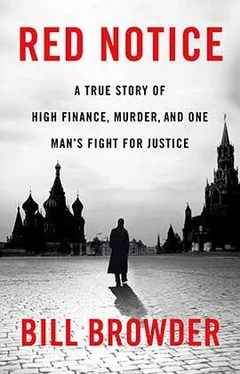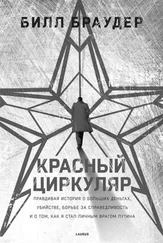Yet, as I sat in the rumbling bus with my forehead pressed against the glass, I thought, This is exactly where I want to be. The road ahead was open and full of possibility.
Six hours later, we arrived in Sanok, a town of less than fifty thousand in the wooded and hilly southeastern corner of Poland, ten miles from the Ukrainian border. We arrived at Autosan’s company restaurant and made our way inside for a banquet with Autosan’s management team and the executives from the World Bank. None of the guests wanted to touch the meal — greasy pork chops, overboiled potatoes, and some kind of savory gelatin containing bits of pork. In addition to the unappetizing food, an underlying odor of industrial solvent from the nearby factory wafted through the air. I got the feeling that everyone who was not from Sanok wanted to get out of there as quickly as possible. The bus company management wasn’t going to let us go, however, and continued with toasts well into the evening. Finally, at 11:15 p.m., as coffee was being served, the World Bank team awkwardly rose, made their excuses, climbed back on the bus, and took it to Rzeszow, the closest town with a decent hotel.
My BCG colleagues waited until the World Bank team was safely out of sight before they also rose and made their excuses. They went outside and Wolfgang negotiated with two taxi drivers to take them the whole six hours back to Warsaw that night.
I was the only one left — a twenty-six-year-old MBA with one year of consulting experience — to save this company from disaster.
After coffee I said my good-byes to the management, who didn’t seem to understand that I was a nobody compared to everyone who had just left. I was then escorted to the Hotel Turysta, which would be my home for the next few months.
The Turysta was a musty, four-story concrete building a couple of blocks from the San River. It had no elevator so I had to take the stairs. The passageway was narrow and dimly lit, and my room was tiny. More hall than room, it had two twin beds that were pushed against opposite walls, and the only floor space was the gap between them. Bolted to the wall over one of the beds was a thirteen-inch, black-and-white television. A plain, chintzy end table was pushed between the beds. On top of this was a single lamp. Above the lamp was a small window that overlooked a vacant lot.
It wasn’t the Four Seasons, but I was so excited to be in Poland that I didn’t care.
I tried the plastic rotary phone to see if it worked, but the line only connected to the matronly woman at the front desk, who didn’t speak a word of English. I unpacked, stuffing my clothes into the wardrobe. The room was cold and the radiator wasn’t working, so I put on the parka I’d brought for the upcoming winter. I turned on the TV — there were only three stations, all in Polish. One channel was news, one was soccer, and one was some show about sheep. I turned off the TV. I fiddled fruitlessly with the dial of a shortwave radio I’d brought, but found nothing and gave up.
I got into bed and tried to sleep, but it was simply too cold. I tapped the radiator and turned the valve near the floor, but no heat came. Normally I would have called the front desk, but given the language barrier, that wouldn’t have helped. I got some more clothing out of my wardrobe and pulled the blankets off the other bed and buried myself under all of it. Even though I was still wearing my parka, this didn’t work either. I tossed and turned all night and barely slept. When the sun began to rise, I turned on the shower, hoping that at least would warm me. I waited and waited for the stream of hot water, but it never got better than lukewarm.
I skipped the shower, got dressed, and went down to the Turysta’s small restaurant to meet my translator for the first time. A trim man in an ill-fitting, gray polyester suit stood bolt upright as soon as I appeared. He tucked a rolled-up newspaper under an arm and extended a hand. «Mr. William?»
I took his hand. «Yes. That’s me».
«Hello. My name is Leschek Sikorski!» he said enthusiastically.
Leschek, a few years older and a little taller than me, had light brown hair, bright green eyes, and a neatly trimmed beard. In different circumstances he might have been good-looking, but the bad suit — and his crooked teeth — dashed that possibility.
«Please, sit». Leschek motioned toward a chair. «How was your sleep?» he asked, nearly shouting at the end of the sentence.
«Cold, actually. There was no heat in the room».
«Yes. They don’t turn it on until winter officially starts!» He again shouted the last word. He spoke English so unnaturally that I was certain he’d learned it from a set of Berlitz tapes.
The waitress showed up and poured me a cup of tea while Leschek told her something in Polish. When she disappeared, I asked, «What did you say to her?»
«To bring you the breakfast».
«Is there a menu?»
«No, no. Only one breakfast!»
A few minutes later breakfast arrived: overcooked sausages and some strange Polish processed cheese. I was so hungry that I choked it all down.
Leschek ate his meal dutifully, neither disgusted nor excited. Midway through the meal, his mouth full of food, he asked, «You are from London, yes?»
«That’s right».
A smile spread across his face. «Then I have favor to ask». He lowered his voice and whispered, «Can you introduce me to Samantha Fox?» Samantha Fox was a busty English pop singer who’d gotten her start by modeling topless on Page 3 of the British tabloid the Sun .
I gave Leschek a funny look. «I’m afraid not. I don’t know her».
He leaned back in his chair with a doubtful look and insisted, «But you must. You’re from London».
«Leschek, I wish I could help, but there are seven million people in London». I didn’t want to be rude, but this was ridiculous. How was I going turn around a failing bus company if my main connection to the outside world was this strange guy obsessing about a topless model from England?
After breakfast, Leschek and I left the hotel and folded ourselves into the tiny, red Polski Fiat that the bus company had provided for me during my stay. After several attempts, I got the engine to sputter to life. Leschek smiled as he directed me to Autosan’s headquarters, a seven-story, white concrete building near the river. We parked, and as I passed into the lobby, I detected the same unpleasant smell of industrial solvents from dinner the night before. Leschek and I took the elevator to the top floor and found our way to the general manager’s office. The general manager stood in the doorway like a barricade — his broad shoulders taking up nearly the whole space — his thick mustache perched over a beaming smile. He appeared to be twice my age and had worked at Autosan for his entire career. As I drew near, he stuck out the thick-fingered hand of a laborer, and when I took it, he squeezed so hard it felt as if my small hand had been trapped in a wringer.
He ushered Leschek and me into his office and began speaking quickly in Polish. «Welcome to Sanok», Leschek translated, talking over him. «He wants to know if you would like some brandy to toast your arrival?»
«No thank you», I said awkwardly, wondering if I was making some cultural faux pas by rejecting his offer of hard alcohol at 10:00 a.m.
The general manager then launched into a speech that once again expressed his excitement that I was there. He explained that Autosan was Sanok’s main employer. If the company failed, then the town would also fail. He and everyone else at Autosan thought that BCG — and by default me — was going to save the whole lot from financial ruin. I tried to look serious and nodded at all of this, attempting to convey some semblance of confidence, but inwardly I was completely mortified by the scope of my responsibility.
Читать дальше












